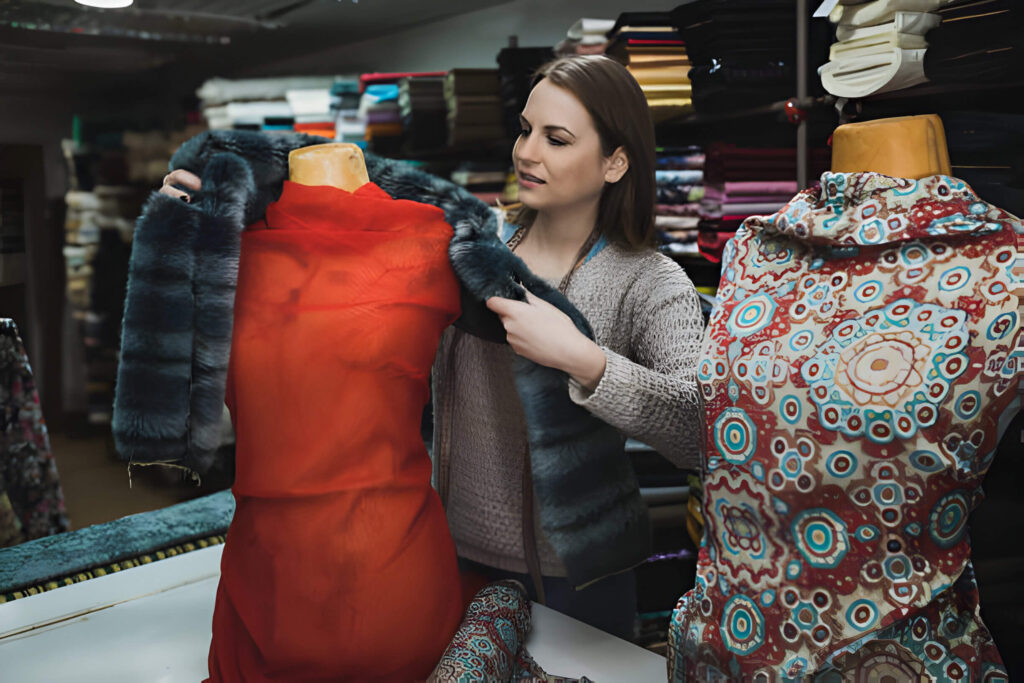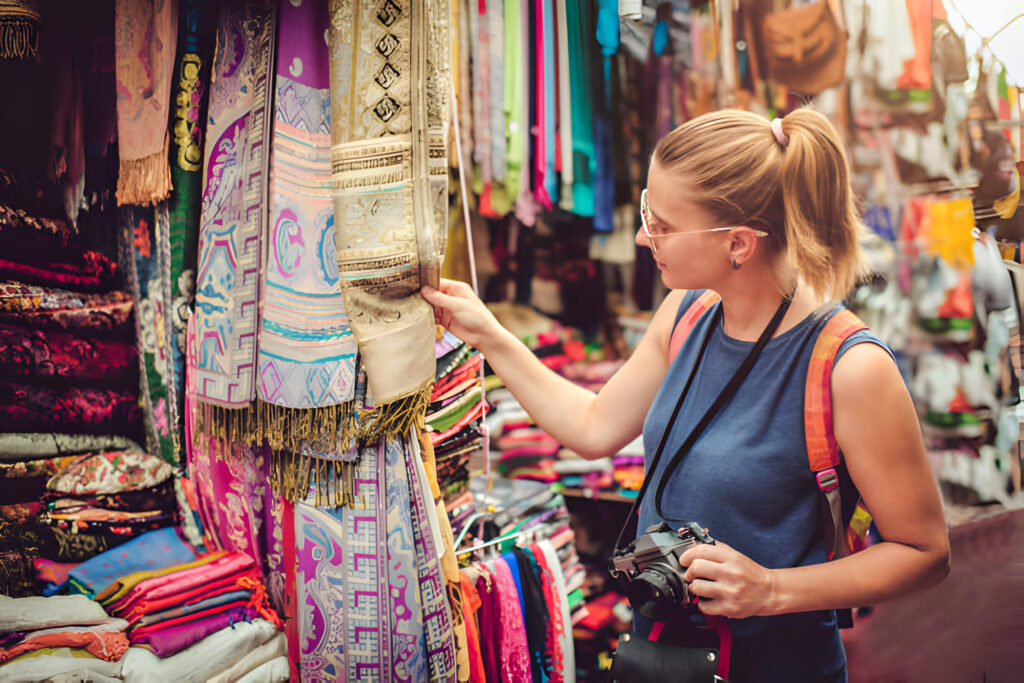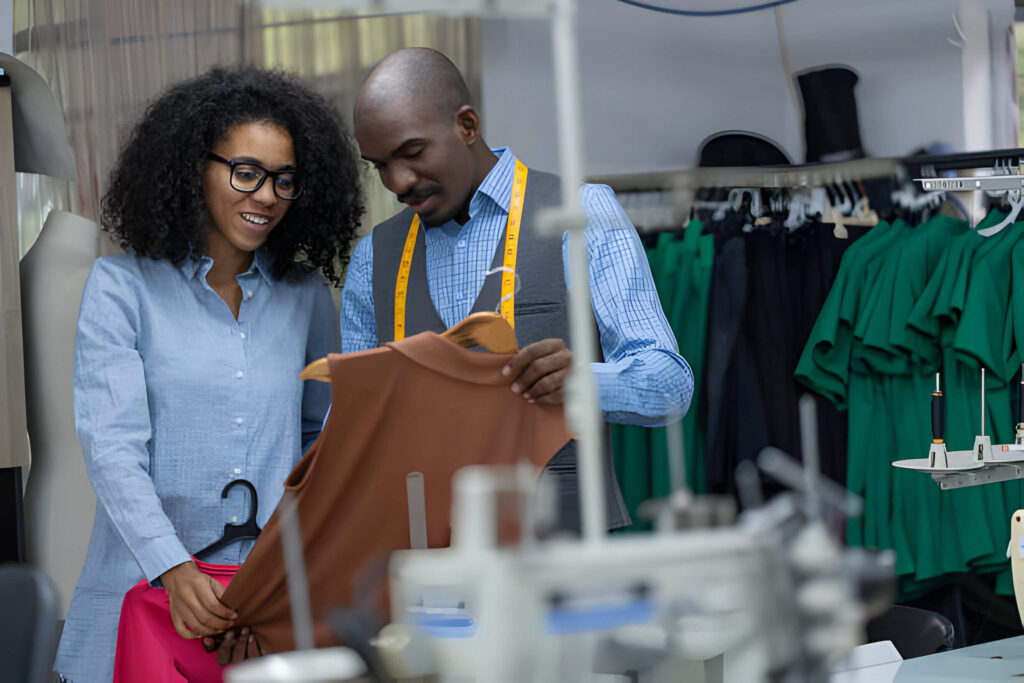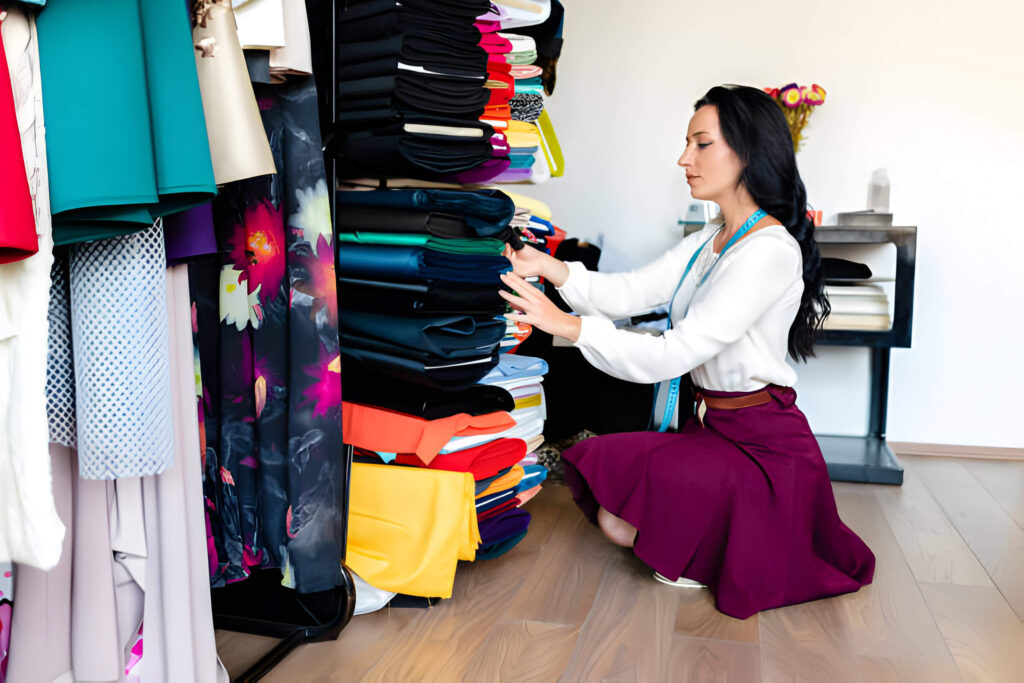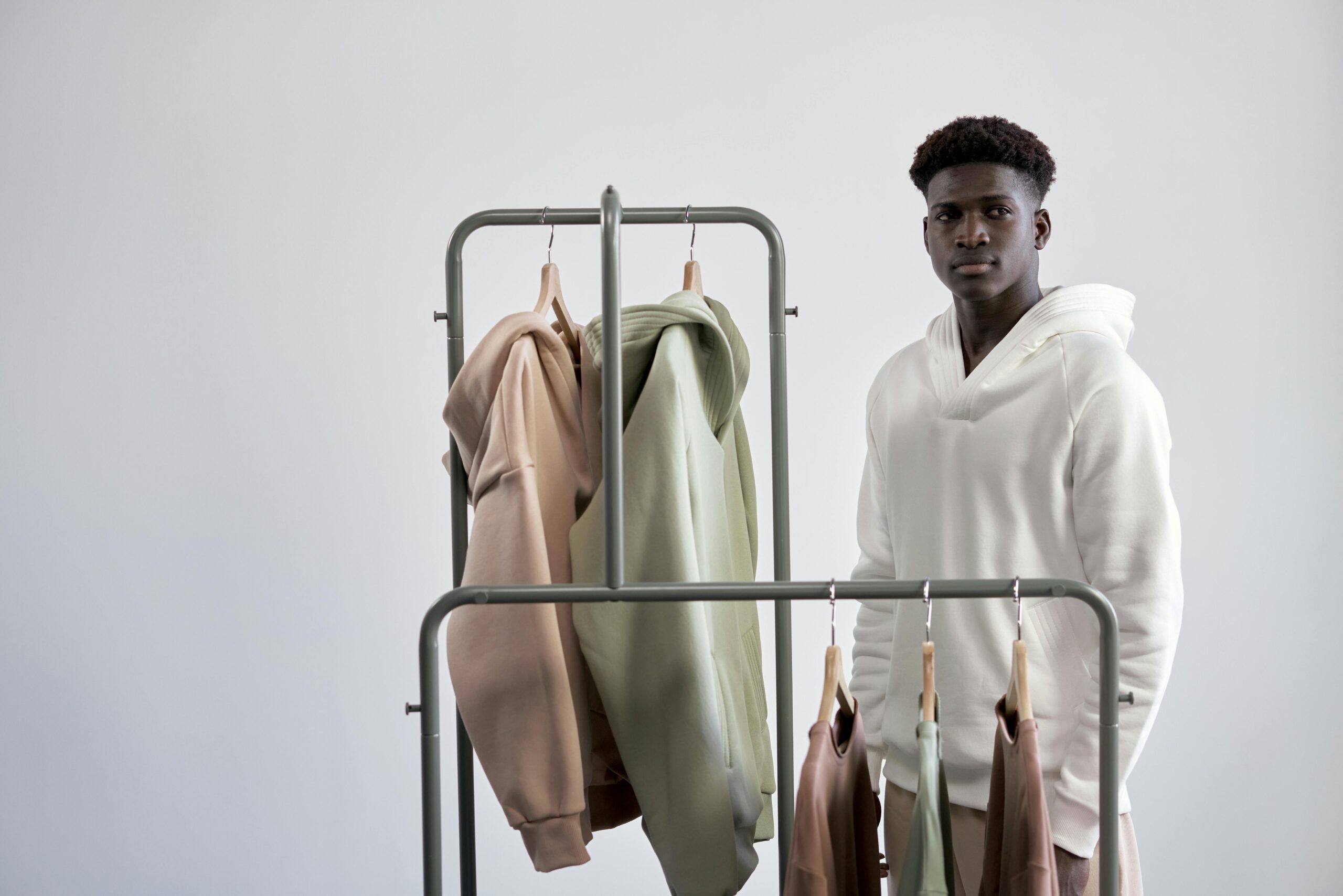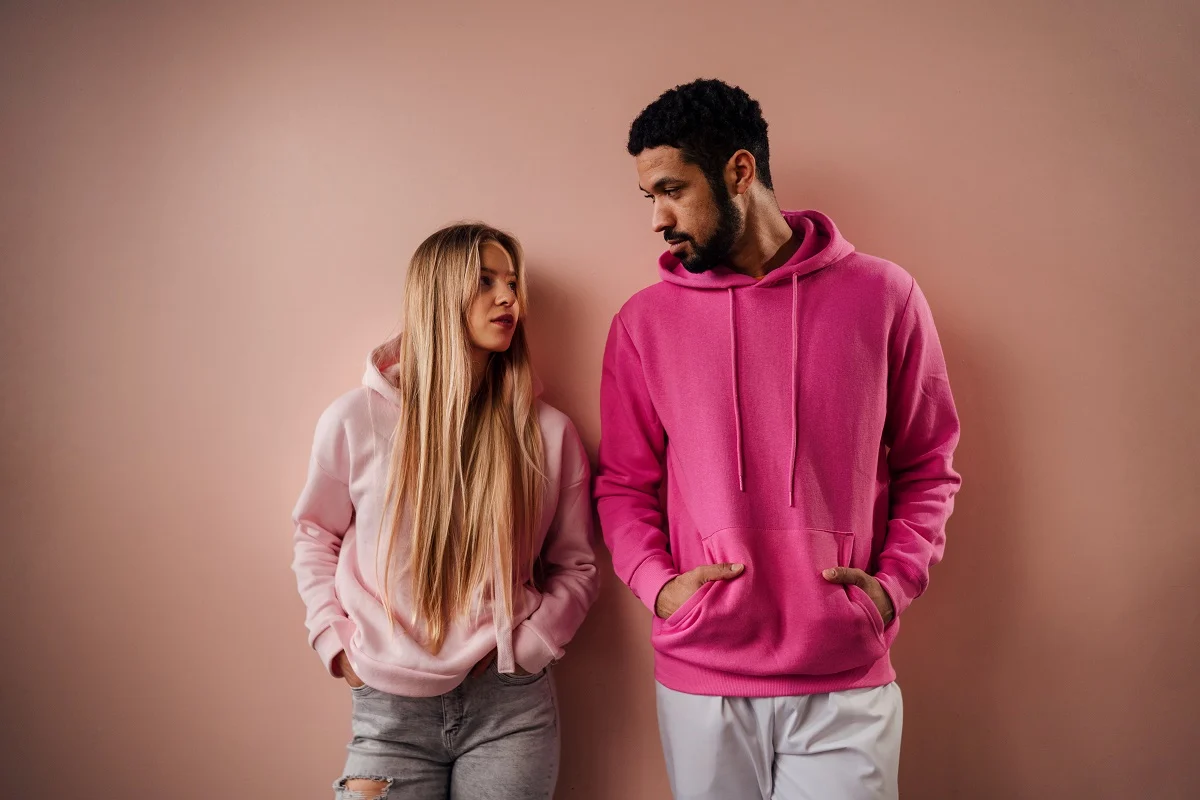Are you starting your clothing brand? That is amazing! However, before you start creating your next hot seller, it’s important to take one key step: locating the ideal clothing manufacturer to bring your ideas to life. This blog is your one-stop guide on how to find a clothing manufacturer that perfectly aligns with your business needs! We will address all aspects, including determining your needs, managing communication, and establishing a solid partnership. Let’s get started!
Why Do You Need Apparel Manufacturers for Your Business?
Clothing businesses rely heavily on apparel manufacturers in their supply chain. There are multiple reasons why your company requires clothing manufacturers.
Cost Efficiency
Manufacturers gain advantages from economies of scale, allowing them to manufacture high volumes of clothing at a reduced cost per item. This cost efficiency enables your business to provide competitive pricing without compromising margins.
Compliance and Standards
Clothing producers have an understanding of industry rules and regulations, such as labor laws, environmental guidelines, and safety requirements. Teaming up with manufacturers who follow regulations guarantees your products adhere to legal and ethical guidelines.
Access to Expertise
Clothing producers frequently possess extensive expertise and specialized understanding in fabric manufacturing, fabric choice, and apparel assembly. This knowledge can be extremely helpful in developing top-notch products that satisfy the needs of the market.
Customization
Numerous companies provide customization choices, enabling you to design individualized products according to your brand’s requirements. This can assist in distinguishing your products in a competitive market.
Speed to Market
By having effective production methods, manufacturers can reduce lead times, allowing your company to introduce new products to the market faster. This flexibility is crucial in the quickly moving fashion sector where styles can shift swiftly.
Types of Clothing Manufacturers
Understanding the different types of clothing manufacturers is essential when finding a clothing manufacturer for your business. Various companies provide a variety of services, capabilities, and advantages.
Knowing the differences between local and international partners can assist you in making a well-informed decision that meets your business requirements, whether you are seeking a partner nearby or exploring options abroad.
Domestic Clothing Manufacturers
Custom clothing manufacturers in your own country provide the benefit of enhanced communication, quicker shipping, and improved quality control. These manufacturers are perfect for companies that need to uphold strict control over the production process while also needing lower minimum order quantities.
Collaborating with domestic manufacturers frequently results in a more cooperative partnership, enabling faster modifications and customization.
Overseas Clothing Manufacturers
Clothing manufacturers abroad are generally located in nations with less expensive production expenses, like China, India, Vietnam, and Bangladesh. These suppliers can provide substantial financial savings, especially for higher volumes of orders.
Nevertheless, companies face obstacles like communication barriers, extended production timelines, and possible quality control problems. Thorough due diligence and clear communication are crucial for successful partnerships with foreign manufacturers.
Cut and Sew Manufacturers
Cut and sew manufacturers are experts in making clothing from the beginning, using raw materials. They trim fabric pieces based on specific patterns and stitch them together to make final products. Working with cut and sew manufacturers provides a significant advantage due to the extensive customization options they provide.
Companies can create one-of-a-kind items customized to fit the style and requirements of their brand. This form of production is perfect for businesses that value quality and uniqueness more than mass manufacturing.
Private Label Manufacturers
Private label manufacturers create clothing products for companies to customize and market with their brands. These producers usually provide a variety of pre-made items that can be personalized with your company’s labels, logos, and packaging.
Utilizing private label manufacturers offers the advantage of fast entry into the market, enabling companies to broaden their product offerings rapidly without the need for designing and producing from the ground up. This method is affordable and enables quick expansion of stock.
Full-Service Manufacturers
Full-service manufacturers offer comprehensive solutions, managing all aspects from design and procurement to manufacturing and quality assurance. These producers are especially advantageous for companies that opt to delegate the complete manufacturing process.
Manufacturers that offer full-service streamline operations, eliminating the need for various vendor connections and ensuring consistent quality and deadlines. This form of collaboration is perfect for businesses that want to prioritize marketing and sales and delegate production responsibilities to professionals.
OEM (Original Equipment Manufacturer)
Garments are manufactured by OEMs according to the designs and specifications given by customers. They do not come up with their designs, instead, they produce items only for other brands. OEMs excel in achieving large-scale production at competitive pricing while maintaining specific quality requirements.
This is ideal for well-known companies seeking to delegate production tasks while still influencing design and branding. OEMs provide the option to adjust production levels according to demand, making them a flexible choice for various business requirements.
How To Find Clothing Manufacturers – Step By Step Guide
“How to find a garment manufacturer?” has been a question of many clothing businesses. Finding the right clothing producer is essential for every retail company seeking to get clothes made that are top-quality, cost-effective and efficient. This detailed guide will take you through each stage, from identifying your requirements to establishing a durable partnership with your chosen manufacturer. By adhering to these specific instructions, you can guarantee a prosperous collaboration that matches your business objectives and criteria.
Understand Your Needs
Before you start to find a manufacturer for clothing, you need to have a comprehensive understanding of your company’s specialized requirements. Begin by establishing your product line: what kinds of apparel will you make, what styles will you sell, and what materials will you use?
Next, decide on manufacturing volume and regularity to guarantee you can meet demand without overcommitting. Identify your target market and set the quality standards you must maintain to meet client expectations. Finally, examine your budget and pricing plan, balancing cost and quality to get the best results for your organization.
Research Potential Manufacturers
But where to find clothing manufacturers? So, once you’ve determined what you need, you may begin researching potential manufacturers. Online directories and marketplaces are good beginning locations, allowing access to a diverse choice of producers globally to find a manufacturer for clothes.
Attending industry trade events and exhibitions can also be quite advantageous, as they provide the opportunity to network and develop relationships with possible manufacturing partners. Don’t overlook the importance of referrals and recommendations from your professional network, as firsthand knowledge can provide useful insights. Consider joining business groups to connect with verified manufacturers who match defined criteria.
Evaluating Manufacturers
Evaluating potential manufacturers is an important step in ensuring that they satisfy your business needs. Begin by evaluating their quality assurance systems to better understand how they maintain high standards. Examine their experience and competence, especially in generating the types of outfits you require. Ensure that the manufacturer has enough production capability to accommodate your order volume and frequency.
Compliance with legal and ethical requirements, such as ISO accreditation and Fair Trade practices, is also critical. Furthermore, look for the most recent technology and innovation in their manufacturing processes, since current equipment can contribute to increased productivity and product quality.
Requesting Samples and Prototypes
When you find a clothes manufacturer, requesting samples and prototypes is vital for assessing the manufacturer’s skills firsthand. When requesting samples, be specific about your preferences and pay special attention to material quality, stitching, and finishing. Evaluating sample quality will help you understand what to expect in full-scale manufacturing for clothing lines.
Prototypes are especially crucial in custom designs since they ensure the fit and quality of the finished product. This stage allows you to make any necessary revisions before committing to large orders, reducing the chance of defects and assuring client happiness.
Assessing Costs and Pricing
Budgeting and financial planning require an understanding of possible manufacturers’ costs and price models. Familiarize yourself with popular price structures such as FOB (Free on Board) and EXW (Ex Works) to better comprehend the costs involved.
Divide the expenditures into materials, labor, and overheads to obtain a better view of where your money is going. Effective bargaining is essential for obtaining the best rates while maintaining quality. Use these data to strike a balance between cost and quality, ensuring that your items are competitively priced while maintaining profit margins.
Building a Strong Relationship
Building a solid relationship with your manufacturer is critical to get your clothing designs manufactured efficiently. Clear communication and regular updates are required to keep both parties on the same page. Set explicit expectations and timetables to avoid misunderstandings and ensure that products are delivered on time.
If possible, pay a visit to the production facility to obtain firsthand knowledge of their operations and establish a personal connection. Maintaining a successful working relationship entails ongoing collaboration and timely resolution of challenges, resulting in a long-term partnership that benefits both sides.
Legal Considerations
Working with clothes producers to get apparel made, requires an understanding of legal considerations. Make sure your contracts are detailed and include important elements like production timeframes, payment terms, and quality standards. Patents, trademarks, and copyrights can help protect your designs and brand.
Understand shipping terms and logistics so that you may efficiently control costs and delivery timelines. Finally, develop a strategy for dealing with disputes and conflict resolution to ensure that concerns are addressed quickly and the partnership runs well.
How to Judge the Credibility of the Apparel Manufacturers?
Finding apparel manufacturers that are just right is critical to assuring product quality, meeting delivery schedules, and maintaining a strong brand image. Here are some important elements to consider while evaluating the reliability of potential garment manufacturers:
Research Their Background
- Company History: Determine how long the manufacturer has been in business. A long track record often indicates consistency and dependability.
- Reputation: Look for reviews and testimonials from other businesses. Platforms such as Google Reviews, industry forums, and business directories may offer information about their reputation.
Legal and Contractual Security
- Contracts: Ensure that all agreements are formalized in reliable contracts that include production timelines, quality standards, payment conditions, and other important details.
- Dispute Resolution: Include dispute resolution clauses in the contract to ensure that possible concerns are addressed pleasantly and effectively.
Check Certifications and Compliance
- Certifications: Check to see if the manufacturer has any relevant industry certifications such as ISO, GOTS (Global Organic Textile Standard), or Fair Trade.
- Compliance: Ensure that they follow legal and ethical norms, such as labor laws, environmental restrictions, and safety guidelines.
Assess Their Communication and Transparency
- Responsiveness: Pay attention to how promptly and efficiently they answer to your queries. Good communication is vital for a successful working relationship.
- Transparency: A credible manufacturer should be open about their procedures, prices, and timescales. They should be willing to share extensive information and answer any queries you may have.
Review Their Client Portfolio
- Client List: Request a list of their current and prior clientele. A manufacturer with a diverse and respectable client base is likely to be trustworthy.
- Case Studies: Request case studies or examples of similar projects that have been performed. This will offer you an indication of their experience and knowledge in your particular product category.
Visit Their Facility
- On-Site Visits: If possible, go to the manufacturer’s facility and observe their activities firsthand. This will help you better grasp their production capacity and working environment.
- Virtual Tours: If an in-person visit is not an option, request a virtual tour or video walkthrough of their facility.
Choose the Right Model for You: Alternatives to Clothing Manufacturers
If you’re planning to begin a small or large clothing business, wholesale clothing manufacturers are a good option to get clothing manufactured. Wholesale is an ideal business model if you have enough room to store inventory. This is possible by buying bulk stock at a lower price and then reselling it to customers at a higher price.
If you lack storage space for large amounts of stock, think about using dropshipping as an option since you won’t have to handle your inventory. Once you have obtained clothing from a supplier, there is no need to place any orders—just market your products to customers. After purchasing an item, get in touch with the manufacturer or supplier to arrange the order with them. Afterwards, they will send the product directly to your customer.
You can update the products you sell easily with a few clicks without any financial consequences because the products have not been produced yet and no inventory needs to be physically handled. Your main focus should be on expanding your business.
If you are starting a new business or trying out different niches, we suggest beginning with a leaner e-commerce model. Consider starting with dropshipping to test if there is an audience to target before collaborating with clothing brands manufacturer.
How Much Does It Cost To Start A Clothing Line?
The cost of starting a clothing brand can range from $550 to $11,000, depending on who you choose to collaborate with. If you’re an accomplished designer, you may expect to pay between $30,000 and $55,000.
Again, it depends on the number of factors in your business plan. Are you an individual looking to start a small clothing business and make an impact in the fashion industry? Then, your expenses will be lower.
If you’re an ambitious entrepreneur with huge goals, it may cost much more to launch a successful clothing company. In this case, you should consider it before entering the fashion industry.
Fueling Your Fashion Dreams with the Right Manufacturer!
Finding the right garment manufacturer is an important step in starting and expanding your fashion business. Understanding your needs, conducting thorough research, and carefully evaluating possible partners will help you develop a successful and long-term connection that provides high-quality products and efficient production processes. Remember, choosing the right manufacturer can be critical to your brand’s success in the competitive fashion business. Are you ready to take your apparel business to the next level? Partner with Weft Apparel for superior manufacturing solutions that are suited to your specific business requirements. Contact us now to get started!


